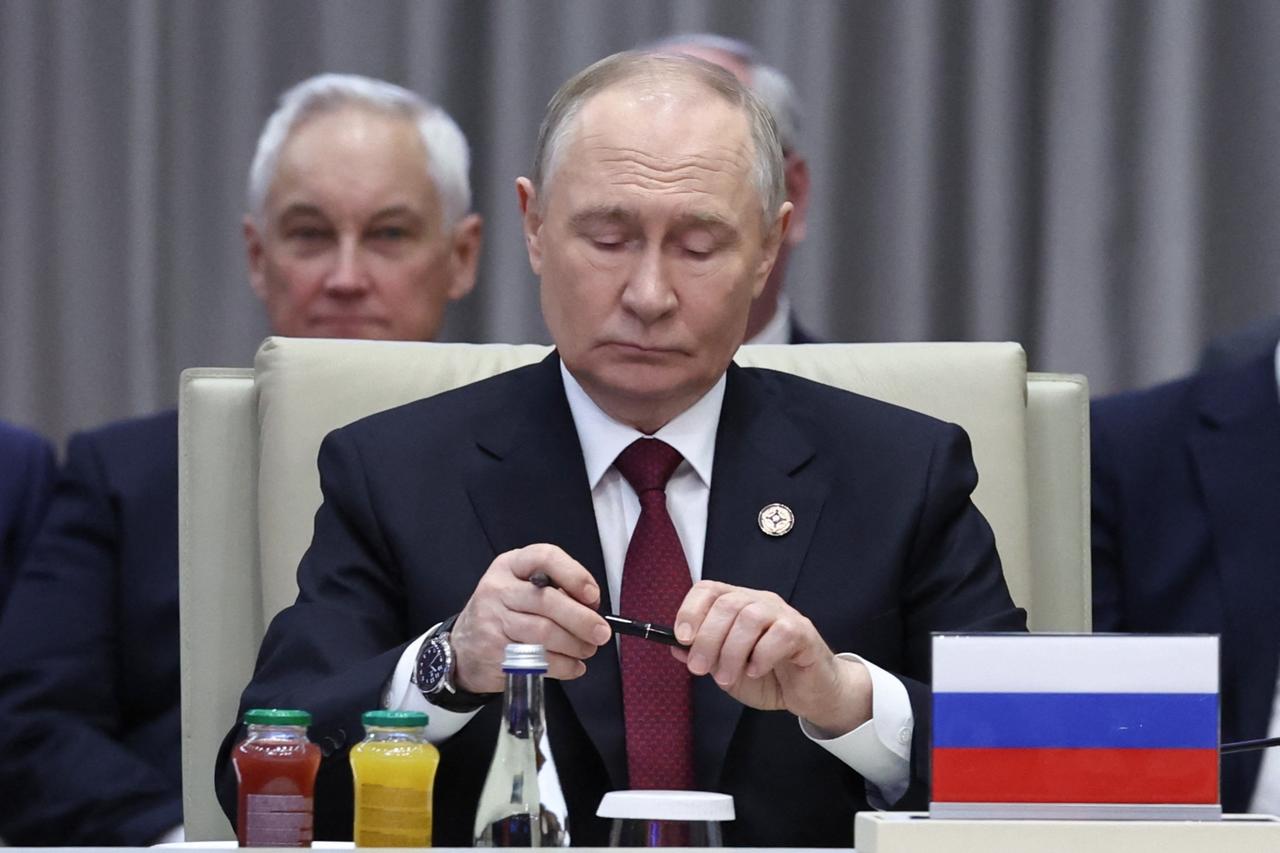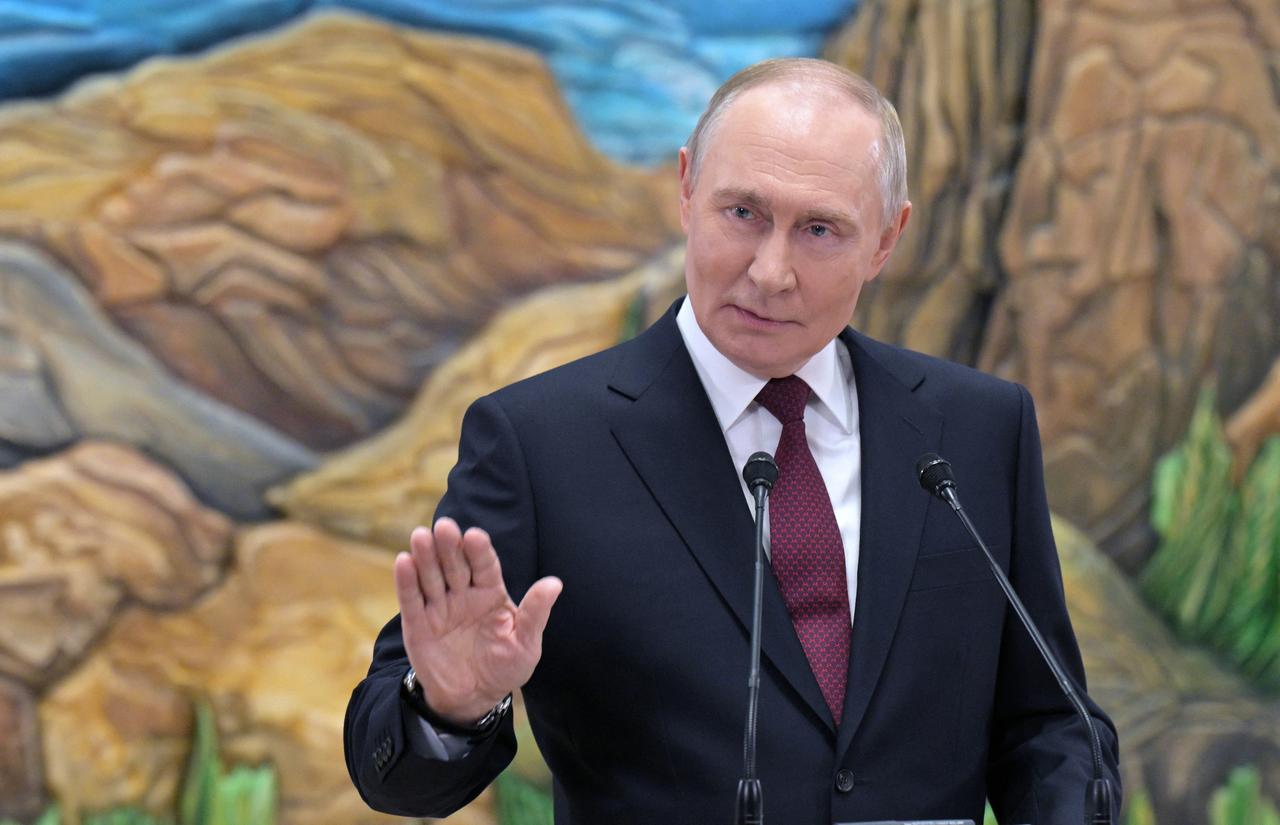
Russian President Vladimir Putin confirmed Thursday that a meeting between Russian and Ukrainian officials took place last week in Abu Dhabi, the capital of the United Arab Emirates, and said Moscow generally agrees that the U.S. proposal could serve as a basis for future negotiations.
Speaking at a press conference in Bishkek, Kyrgyzstan, Putin revealed that the meeting was held at Kyiv’s initiative and included an unexpected participant—an official from the United States administration.
"The presence of U.S. representatives at the Abu Dhabi talks came as a surprise," Putin said, emphasizing that Washington had since informed Moscow it would send a formal delegation to Russia in the coming week. He noted that the composition of the delegation would be determined solely by the U.S. government.
Confirming Russia’s readiness to conclude a peace agreement, Putin remarked that while some provisions in the U.S.-backed peace draft reflect Russian positions, others still require serious discussion.
He added that any agreement with Ukraine would require international legal recognition, which he described as "currently impossible," pointing out that President Volodymyr Zelenskyy’s term expired in 2024 and that, under martial law, only the Ukrainian parliament—the Verkhovna Rada—has the authority to extend its mandate.
Putin reiterated Moscow’s willingness to engage in broader discussions on strategic stability and European security, including nuclear issues. The Russian president said his administration intends to raise the topic of nuclear testing during the upcoming talks with the U.S., in light of the approaching expiration of the New START treaty in February.
"If they don’t want to do anything about the New START treaty, then that’s okay," Putin said, referring to the arms control pact that has served as the cornerstone of nuclear weapons regulation between Washington and Moscow since 2011. The treaty, extended through 2026, limits each side to 1,550 deployed warheads and includes verification measures such as on-site inspections.

Putin stated that Russia would halt military operations in Ukraine if Ukrainian forces withdrew from territories Moscow claims as its own, adding, "If Ukrainian forces leave the territories they hold, then we will stop combat operations. If they don’t, then we will achieve it by military means."
He asserted that the conflict would end once Ukrainian troops withdrew and claimed that "those who understand what is happening in the battle zone" are urging Kyiv to sign a peace agreement because it is losing. Russia currently controls about 20% of Ukrainian territory, with the issue of sovereignty remaining the main obstacle to a cease-fire as Kyiv maintains it will not cede land under occupation.
Putin also offered to formally confirm that Russia has no plans to attack Europe, saying, "If they want to hear it from us, we’ll put it on record, no problem." Dismissing European security concerns, he insisted that Moscow had never intended to target the continent and was prepared to put such assurances on paper if necessary.
European Commission President Ursula von der Leyen said Wednesday that the EU is ready to present a legal text enabling loans to Ukraine backed by frozen Russian assets, following a pledge made at last month’s EU leaders' summit to meet Ukraine’s financial needs in 2026 and 2027. She emphasized that European taxpayers would not bear the full burden and reiterated the EU’s determination to maintain pressure on Russia until a just and lasting peace is achieved.
Referring to von der Leyen's statements, the Russian president warned about potential Western moves to seize Russian assets, calling such actions "a theft of property" and a threat to global financial stability.
He noted that a retaliatory package of measures is being prepared in Moscow should any such confiscations take place.
Putin said he was surprised by the U.S. sanctions imposed in October on Russia’s largest oil companies, Lukoil and Rosneft, which forced them to sell their international assets. He argued that there had been no direct conflict between Moscow and Washington since the Alaska talks. "I didn’t even understand what was happening," Putin said, warning that the sanctions are damaging Russia’s relations with the United States.